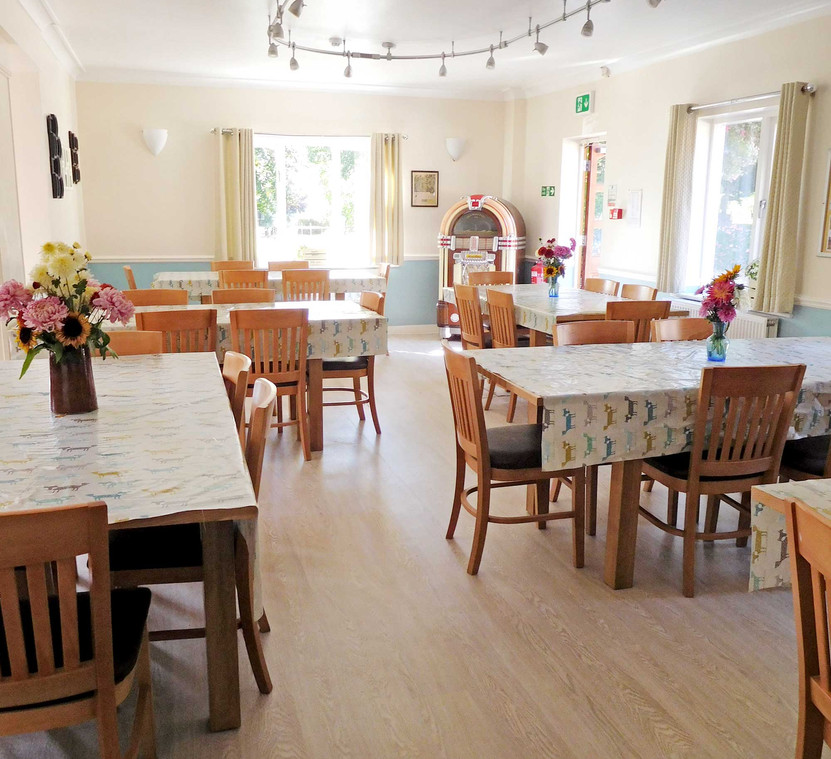

Our Children’s Home
Glebe House has a genuine, warm atmosphere giving a sense of security and belonging for young people. There is a real sense of community based on mutual respect, to which all young people and residents contribute.

Milieu (Therapeutic Environment)
The experience of living in a therapeutic community offers the opportunity for significant learning. Most of the young people who live in our community have experienced disruption during their early years that may be reflected in the quality of the relationships they form.
At times, this presents as an inability to develop a sense of belonging, and our young people can havemaladaptive responses to their environment. To support them through this, emphasis is placed on the significance of group-living and management of day-to-day tasks as a repetitive therapeutic tool.
It is within the day-to-day interactions with peers, adults and the wider community that their progress, in terms of relapse prevention, can be monitored and reinforced.
Care Programme
Secure Based Model
Sensitivity - Managing Feelings,
Acceptance - Self-Esteem,
Co-operation - Feeling Effective,
Family Membership - Belonging,
Availability - Trust.
Trauma Informed Practice
Safety - Feeling physically and psychologically safe.
PACE
Playfulness,
Acceptance,
Curiosity,
Empathy.
Therapeutic Community Model
A residential, participative approach with individual and group-based sessions. Highly structured days with opportunities for community and personal chores, exercise, education and vocational time.
How We Do It
Relationships in the Community
Pro-social skills where our young people form positive, trusting relationships with staff and other young people.
Cultural and Religious Needs
Learning how to explore and understand cultural and religious identity.
Community Mindedness
Communalism, democracy and consensus along with tolerance and co-operation are demonstrated and learned.
Safety
Trustworthiness and transparency, along with peer support are elements of the safety module.
Trustworthiness and Transparency
Collaboration and empowerment are key skills to be gained.
Independence Skills
Budgeting, routines, safe internet use, safety awareness and developing leisure and hobbies to enrich lives are key independence life-skills.
Therapeutic Community Meetings
Three times a day, the young people sit in a circle. These meetings offer a chance to reflect on recent events in the Community, enabling each young person to give and receive feedback, and to explore the dynamics present in the context of their past experiences.
Chairman Role
All Residents, regardless of ability and status, can apply to be Resident Chairmen. This role carries a great deal of authority, responsibility and the opportunity to use power appropriately. Chairmen not only facilitate Community Meetings, they also attend Staff interviews, take a lead role in inspections, sit on the Health and Safety Committee and contribute to policy making. The selection and interview process is rigorous and many Chairmen go on to be Mentors, working to support Chairmen and the Community.
Integrated Independence Programme
The independence programme integrates care and education, providing a comprehensive framework of care and independence needs. These areas are developed through key working relationships, designated key-working times and PSHE (personal social health and economics) lessons.
Milieu-based activities aim to increase the young person’s sense of self-worth through personal and group achievements. Community events and activities, such as ‘Glebe’s Got Talent’ or ‘Christmas Sketches’, give residents the chance to develop and show their budding self-confidence, self-esteem and their sense of togetherness.
Residential holidays and social activities aim to provide young people with new experiences and social skills, such as eating out at a restaurant and practising social etiquette.












